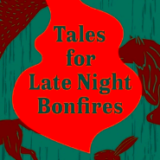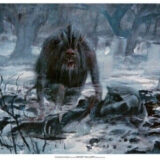(Note: This is from the perspective of someone who has watched the Game of Thrones TV show but is only 120 pages into the first book.)
I’ve spent a serious chunk of my first week in the Game of Thrones fandom catching up on the debate over Sansa Stark. I can’t say I’m really surprised by those who brush her off as a brainless, superficial twit–I’ve been in way too many hostile fandoms (though couldn’t that describe all of them, really?) at this point to be shocked by the rage they tend to froth with. And Sansa is so ripe for it. She’s the ditzy cheerleader, the boy-crazy airhead, the Aberzombie bitch who giggled about, like, Gossip Girl or whatever while you, The Fan, barricaded your misunderstood self in the library’s SF/Fantasy section. No, I certainly can’t say I’m surprised by how vicious the viewers can be towards Sansa. She was doomed from the moment Septa Mordane complimented her needlework.
And I can’t say I’m surprised by the reactions of the more activist-minded spheres of fandom either, though I’m more sympathetic to it. They defend Sansa wholeheartedly against her detractors, arguing–rightly–that she has been forced into an inhuman situation. That she has had moments of tremendous grace and bravery. That the cries of “Ugh, Sansa is so dumb why did she do <x>! If I were her I would have blah blah blah” are ridiculous because who could be expected to behave with perfect rationality and foresight in such a situation? Moreover, they argue that Sansa is a victim of that which befell Ginny Weasley and so many others before her–fandom’s disdain for female characters, particularly the overtly feminine ones. I don’t disagree with this.
My perspective on Sansa Stark lies somewhere between these two poles of argument, however. I find the hatred her character seems to engender ridiculous–she’s a child. But I do, honestly, think there’s brattiness in her. That scene in King’s Landing where she rolls her eyes and tells Septa Mordane that, “Oh that’s right–I don’t care“? That shit makes my blood boil. She’s the highborn, privileged daughter of a lord who has never wanted for anything and it shows. I don’t want to wipe that away, even in the service of validating her character arc. Because that’s part of her arc.
I honestly commend the show (and Martin, of course) for portraying Sansa as an honest-to-god teenager because it’s way more daring than, what, making her perfect? Making her Arya? I really don’t know what exactly the detractors would prefer, but it would have been less impressive. Sansa is a person, and people tend to be unpleasant some of the time. This doesn’t mean they’re altogether horrible people who should be dismissed–they can be capable of courage and fortitude and compassion, as Sansa is. This is Writing 101 stuff, of course: flawed characters are better than perfect ones. But in Sansa, Game of Thrones humanizes an archetype even daring creators are reluctant to touch. Sure, you can have characters who are too ambitious, too harsh, too sarcastic, even cruel. But those are easier flaws (and can easily be softened by an appropriately tragic backstory). A snobby teenage girl who’s lived a life of lemon cakes and embroidery, however? That’s brave. No one likes her on sight.
But it is these attributes that make Sansa’s moments of strength so affecting. When she pleads for her father’s life, one remembers that a scant few episodes prior she was mocking her sister and projecting her fairy tale fantasies onto the prince she now begs mercy from. She had bothered us precisely because she either reminded us of people we know or because we once were like her. Sansa grounds the narrative in a necessary way–in the midst of royals and commanders dealing in kingdom-spanning intrigue, she’s a young girl desperate to go home, utterly blindsided by the viciousness of court. She can play the game to a certain degree–her facade of obedience reveals a surprising canniness–but she never wanted to. She only ever wanted pretty gowns and a charming prince. Sansa’s presence reminds the viewer that characters like Cersei and Littlefinger don’t operate in a vacuum, that their machinations take a very real toll on innocent people–who, yes, might have been self-centered but were never truly cruel. And yet Sansa (as an emissary from a guileless world) also tends to reveal the hidden softness in them: Littlefinger’s (truly uhnealthy) infatuation with Catelyn, for example, channeled through her daughter, and Cersei’s cynicism about the constraints placed upon her by gender. Without Sansa, the story would lose a fairly significant amount of depth.
Sansa is more than a symbol and narrative device, however. In her own, quiet way, she’s a fighter. Not a rampaging queen like Daenerys, nor a sword-wielding Brienne, but a fighter nonetheless. She has borne all that King’s Landing could throw upon her while maintaining a mask of perfect subservience. She has protected her hope and a willingness to love through a maelstrom of indignity–no, a marriage to Loras could never have succeeded, but she truly believed it could have. She is cheered by the prospect of a friendship with Margaery. Even when the mask cracks, as when she divulges that Joffrey is a “monster” to the Tyrells, it’s affecting–you can feel her desperation for honesty, for genuine human connection. These people have been kind to her in a way no one else is and she reaches towards it hungrily, exposing the girl within her that still believes in goodness and the promise of the future. Even the worst of King’s Landing cannot corrupt her.
Sansa is not, actually, one of my favorite characters. But I like her and I feel for her and it pains me to see people acting as though the show would be better off without her. No, she’s not Arya, and honestly, I’m so tired of that false dichotomy we draw between The Cool Tomboy Rebel and The Dumb Girly-Girl. No, she’s not Daenerys. No, she’s not Cersei. She’s Sansa, and that’s ok. You don’t have to love her. You don’t even really have to like her. But she’s an important part of the story and acting like she’s some horrible stain on the character roster is blind. Sansa is more like the audience than perhaps many would like to note–she’s a normal person in an abnormal situation. Facing similar foes, I doubt many of us would be able to act with the quiet stoicism she conducts herself with.












Sansa is one of the characters I like least in Game of Thrones, but I agree that’s very good in the ways she’s unlikeable, and that a good story usually benefits from a wide range of realistic characters. If every character was likeable and perfect, they wouldn’t be human. They’d be boring and rejected by most viewers/readers.